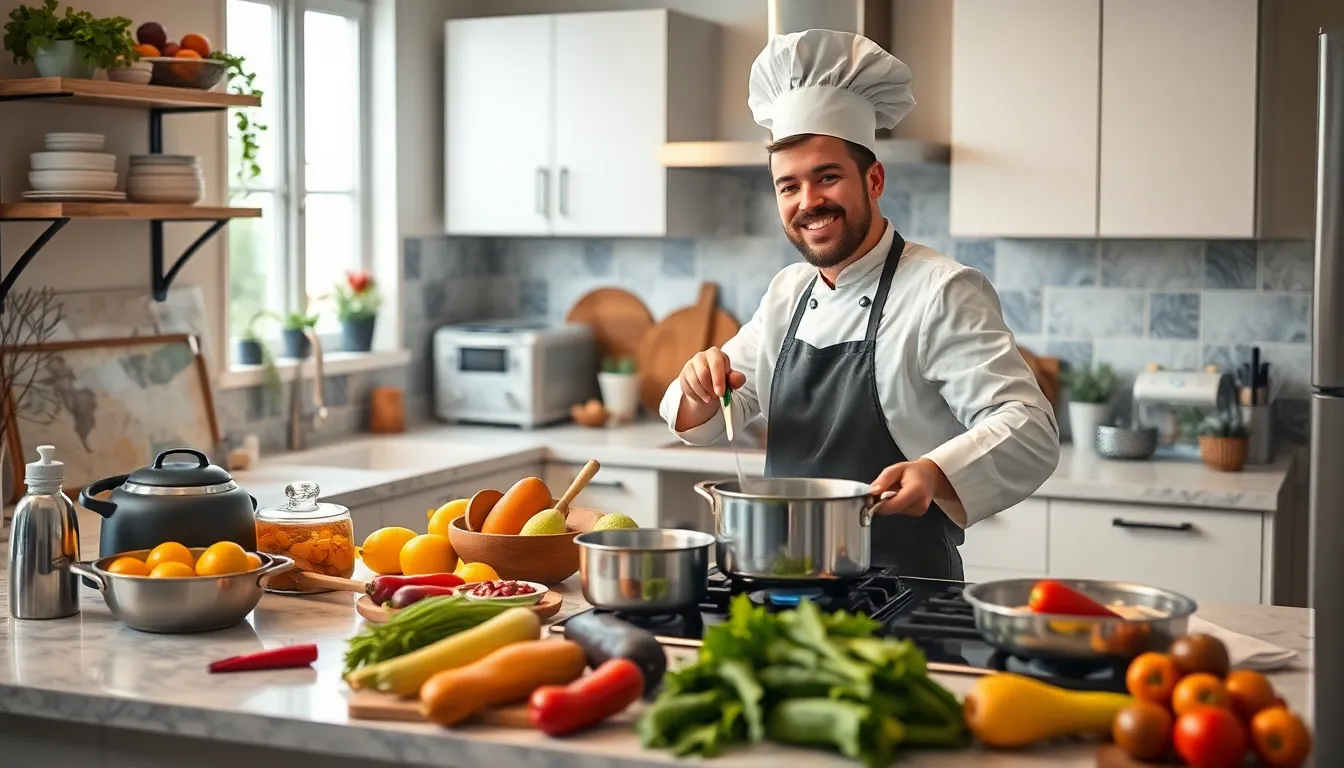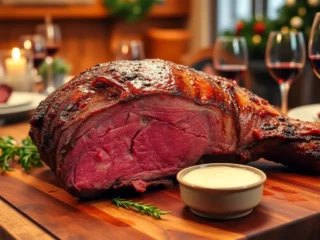
In the world of gaming, cooking simulators have carved out a unique niche that blends culinary creativity with interactive entertainment. These digital kitchens invite players to chop, sauté, and bake their way to culinary mastery, all from the comfort of their own homes. With realistic graphics and immersive gameplay, cooking simulators offer a delightful escape for food lovers and gamers alike. As players navigate through various recipes and challenges, they not only enhance their virtual cooking skills but often learn about different cuisines and cooking techniques. Whether it’s whipping up a gourmet meal or managing a bustling restaurant, these games provide an engaging platform that satisfies both the chef and the strategist in every player.
Cooking Simulator
Cooking simulators offer players an immersive experience in culinary arts, enhancing both skills and creativity. These games replicate real-life cooking techniques and environments, often featuring a diverse array of recipes and cuisines from around the world. Players manage virtual kitchens, balancing ingredient selection, preparation methods, and timing to achieve culinary success. The available challenges and game modes allow for a personalized experience, catering to varying skill levels and interests. Several popular features characterize cooking simulators. These include:-
- Realistic Physics: Simulators often incorporate realistic ingredient interactions and cooking processes.
-
- Varied Recipes: Players can explore an extensive collection of dishes, enhancing their culinary repertoire.
-
- Multiplayer Options: Many games allow for cooperative or competitive play, adding a social aspect to the cooking experience.
-
- Customization: Players often personalize their virtual kitchens and chefs, making the experience unique.
Features of Cooking Simulators

Realism in Cooking
Realism in cooking represents a key aspect of cooking simulators. These games incorporate physics-based interactions, allowing players to experience how ingredients react under different conditions. For instance, when frying, players observe how oil bubbles and food browns accurately. Players handle tasks like chopping, sautéing, and baking using controls that mimic real-life actions, which sharpens their culinary skills. Additionally, realistic ingredient behaviors, such as the effects of heat on different foods, create immersion and authenticity, enhancing gameplay satisfaction.Customization Options
Customization options enable players to create a personalized cooking experience. Players can adjust their virtual kitchens by selecting layouts, appliances, and decor, allowing for unique setups. Customization extends to character creation, enabling players to design chefs with distinct appearances and skill sets. These personalized elements add a layer of engagement, as players can express creativity while exploring different culinary styles and themes within their stakes. Diverse recipes and cooking styles can also be unlocked through customization, ensuring players encounter new challenges and maintain interest throughout their gaming journey.Popular Cooking Simulator Games
Cooking simulator games captivate players with engaging mechanics and community feedback. These games combine fun and education, attracting culinary enthusiasts and gamers alike.Game Mechanics
Game mechanics in popular cooking simulators typically focus on realistic culinary processes. Players handle ingredient preparation, cooking techniques, and time management. Notable mechanics include:-
- Ingredient Interactions: Physics-based systems allow ingredients to behave as they do in real life, enhancing realism.
-
- Recipe Variety: A broad range of recipes, from appetizers to desserts, offers players numerous culinary paths to explore.
-
- Time Challenges: Timed tasks encourage players to work quickly, simulating real kitchen pressures.
-
- Multiplayer Modes: Cooperative and competitive multiplayer settings enable players to collaborate or compete against friends.
-
- Customization: Players can personalize kitchens and chefs, making unique cooking experiences.
User Reviews
User reviews play a significant role in assessing the quality and enjoyment of cooking simulator games. Many players appreciate the realistic cooking techniques and immersive gameplay. Common feedback includes:-
- Engagement Levels: Players frequently highlight how engaging game mechanics keep them entertained for hours.
-
- Learning Curve: Users often note the educational aspect, mentioning skills gained in real cooking.
-
- Graphics and Audio: Many reviews praise the visual and sound design, which enhance the overall atmosphere.
-
- Difficulty Balance: Feedback often mentions variations in game difficulty, catering to different skill levels.
Benefits of Playing Cooking Simulators
Cooking simulators offer various benefits, enhancing both gaming and culinary experiences.-
- Skill Development: Cooking simulators enhance culinary skills by providing realistic cooking scenarios. Players practice ingredient selection and preparation methods, which can translate to real-life cooking competence.
-
- Creativity: Cooking simulators encourage creativity by allowing players to experiment with numerous recipes and customize kitchens and chefs. This freedom fosters inventive thinking and unique dish creations.
-
- Problem-Solving: Players face challenges that require quick decision-making and strategic planning. These problems promote critical thinking and adaptability as players adjust recipes and techniques based on in-game situations.
-
- Multiplayer Engagement: Multiplayer modes foster social interaction. Players collaborate or compete with friends, enhancing enjoyment and creating memorable experiences.
-
- Cultural Exploration: Through diverse recipes and cuisines, cooking simulators introduce players to various culinary traditions. This exposure broadens culinary knowledge and appreciation for global food practices.
-
- Time Management: Players learn effective time management by completing dishes within set limits. This aspect sharpens organizational skills essential in both gaming and real-life cooking environments.
-
- Stress Relief: Engaging with cooking simulators provides an escape from daily stressors. The immersive experience allows players to unwind while indulging in their passion for cooking.






